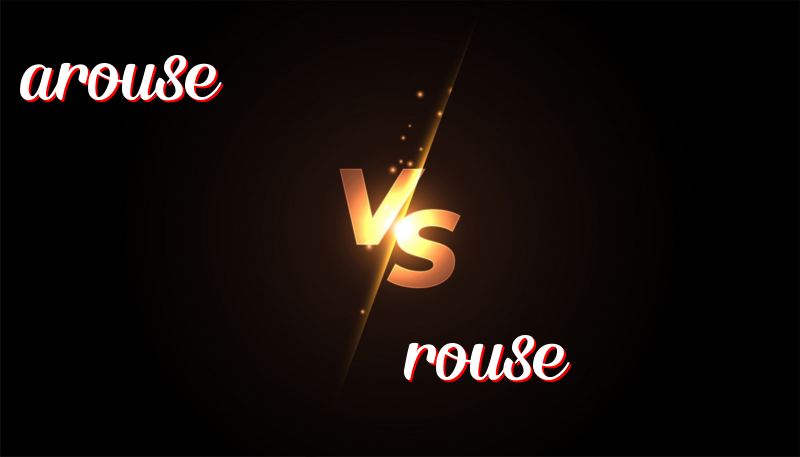**Wakey-Wakey: Arouse vs. Rouse Showdown**
**Arouse vs. Rouse: What’s the Difference?**
“Arouse” and “rouse” might sound similar, but they have different meanings. Let’s explore the distinction between these two words to use them correctly in sentences.
– **History:** The word “arouse” comes from Old French and Latin origins, meaning “to wake up.” On the other hand, “rouse” has a Middle English background, derived from Old English, meaning “to shake out of sleep.”
– **How to Use Them:**
1. **Arouse:** It means to evoke a feeling or emotion.
2. **Rouse:** It means to wake up or stir from sleep.
– **Trick to Remember the Difference:**
– *Remember “arouse” with the letter ‘a’ that can stand for feelings like ‘attraction’ or ‘awakening emotion.’*
– **Example Sentences:**
– **Arouse:**
1. The beautiful music softly aroused his emotions.
2. The inspiring speech aroused the audience to take action.
3. The delicious smell of food aroused my appetite.
4. His kind words aroused feelings of gratitude in her heart.
5. The thrilling movie scene aroused a sense of excitement in the viewers.
– **Rouse:**
1. The noisy alarm clock roused her from deep sleep.
2. She gently roused the sleeping child from the couch.
3. The loud thunder roused the dog from its nap.
4. He had to use all his effort to rouse his lazy friend from bed.
5. The urgent phone call roused him from his daydream.
– **Summary:**
– Use “arouse” when talking about feelings or emotions being triggered.
– Use “rouse” when talking about waking up or stirring someone from sleep.
So, next time you’re confused between arouse and rouse, remember the trick and pick the right word for your sentence!

Leave a Reply
You must be logged in to post a comment.